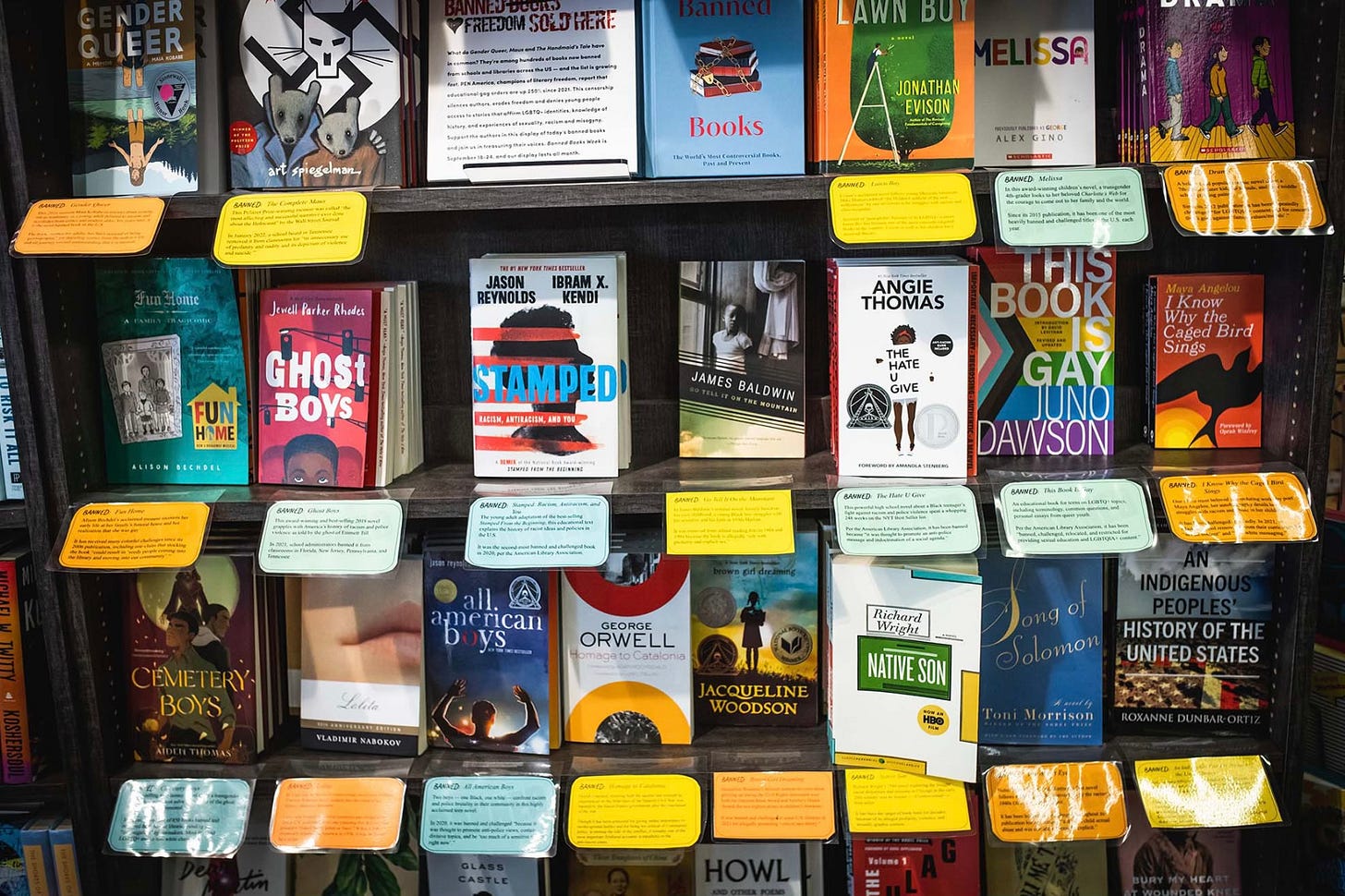Moments and Discoveries
2023 edition
When I was in high school, one of my fellow-students, Cynthia, pitched a fit because Toni Morrison’s book, Tar Baby, was on the syllabus of her American Lit class. I hadn’t yet read Morrison—I preferred pre-20th century British literature and, so far, the only American writer whose work I’d fallen in love with was William Faulkner.
But not only was Cynthia throwing a temper tantrum, she was demanding that the book be banned because of its “foul language.” I’d never actually met somebody who, on the one hand, was so intellectually limited and small-minded that she refused to open herself up to new perspectives on how the English language could be used (all of which was made worse because this person wanted to be a journalist); and, on the other hand, was so arrogant as to assume her teacher didn’t know what she was doing when she chose to teach Morrison’s work. It was assigned reading because it’s an important, because the writing is exquisite, and, like Faulkner or Hemingway or Wharton or Melville before her, Toni Morrison is a quintessentially American writer.
I think Cynthia got a meeting with the principal and the teacher and they decided to accommodate her by allowing her to read a different book. The class as a whole, however, would still read Tar Baby and become better people for it. Even though I wasn’t taking that course, I bought a copy of Tar Baby and carried it around campus with me. A few friends and I also started sporting “I Read Banned Books” buttons.
I didn’t fall in love with Morrison’s work until Junior year in college when I read Sula and Song of Solomon back-to-back. It’s when I read her masterpiece, Beloved, that I realized her brilliance matched Faulkner’s.
Of course, banning books, and the people who want them banned, have never gone away. The only reason I read Harry Potter and the Sorcerer’s Stone almost 20 years after the tar Baby incident, was because it was banned due to “satanism and anti-family themes” as well as its depiction of “wizardry and magic” (which, like the rest of the book, are fictional).
The problem, though, has worsened over the last couple of years. In the first eight months of 2023, the American Library Association reported, there were almost 700 attempts to censor library materials and a more-than 20% increase in challenges to book titles over the same time-frame in 2022. The overwhelming number of these books are “written by or are about a person of color or a member of the LGBTQIA+ community,” according to the ALA.
So, it brought me some no-small measure of joy when Karen Smith, the newly inaugurated school board president of the Central Bucks School District board, a suburb of Philadelphia, chose to be sworn in on a stack of banned books—which included Toni Morrison’s The Bluest Eye—instead of a bible.
Smith, who switched parties because of the anti-LGBTQ+ bias of the Republicans on the Board, helped the Democrats take over the majority with her victory. In being sworn on these books, Smith was demonstrating “the commitment I’ve had to fighting for the books, and for our students’ freedom to read.”
The trend has continued. Several members of the Fairfax County School Board in Virginia, including Karl Frisch, who will be the new chair as of January 1st, 2024, have followed Smith’s lead.
P.S. Banned books make great gifts. What are some of your favorites?




I’m sick & tired of people trying to police my thoughts and behavior (that is not injurious to myself or others). On the other hand, if these book banner people are so concerned about other’s welfare, why don’t they take on gun violence?
To Kill A Mockingbird and The Scarlet Letter, high school English class requirements 1969 and 1970.